Activist
Nigeria Is Bleeding—Have Conscience as Leaders! IG Wala Tells Tinubu, Governors in Powerful Open Letter
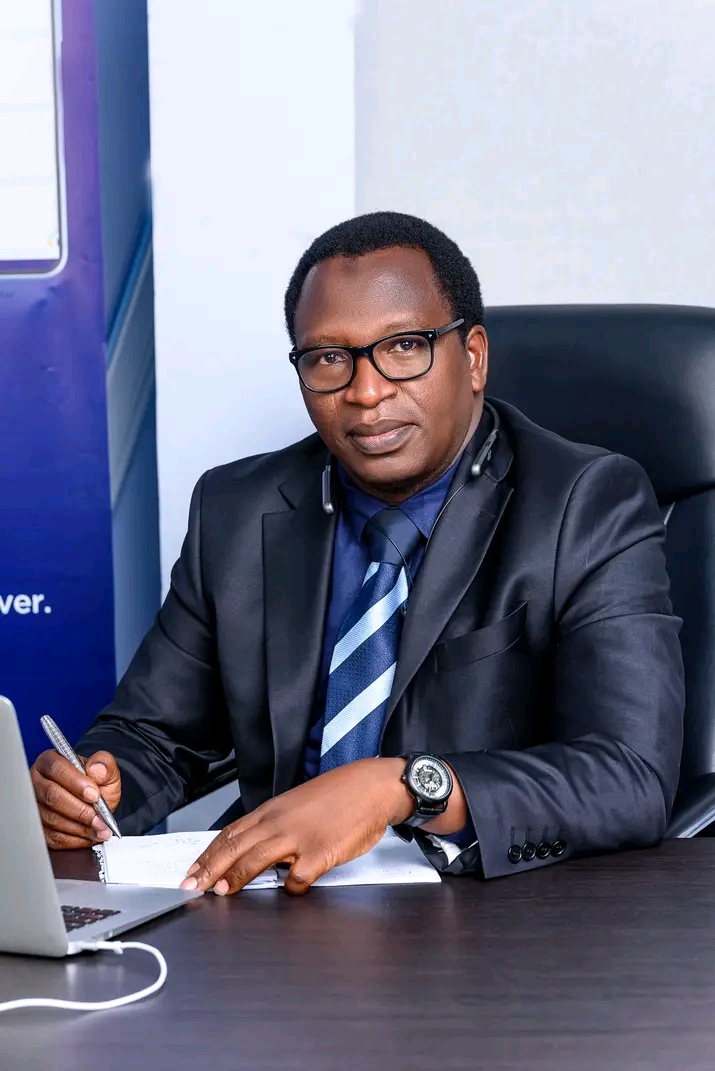
By Our Correspondent
In a compelling and emotionally charged open letter that has stirred national discourse, prominent activist and public accountability crusader, Comrade Ibrahim Garba Wala, popularly known as IG Wala, has called on President Bola Ahmed Tinubu, his presidential team, and state governors to reclaim their conscience and govern with empathy, integrity, and urgency.
Titled “For the Sake of Nigerians and Nigeria, Have Conscience as Leaders!” the letter lays bare the frustrations of millions of Nigerians grappling with hunger, insecurity, and a governance style that Wala describes as increasingly detached from the realities of the people.
A Cry from the Heart
“It is with a profound sense of urgency and a heavy heart that we address you today,” the letter begins, “not as mere constituents, but as citizens deeply concerned by the trajectory of our beloved nation.”
Wala describes a Nigeria where leadership has become synonymous with conquest rather than service, where democratic ideals have been hollowed out, and where political power no longer reflects responsibility to the people.
“Why do leaders contest elective positions if their core values demonstrate nothing short of conquest rather than service?” he asks, pressing Nigeria’s political class to reconsider the true essence of leadership—which, according to him, must be rooted in sympathy, empathy, and an unwavering conscience.
Democracy Under Threat
Wala raises alarm over what he describes as a systemic collapse of constitutional order and democratic principles. He accuses all arms of government—executive, legislature, and judiciary—of failing to uphold the Constitution, allowing instead for the abuse of power and suppression of dissent.
“Why do we have this Constitution if its tenets are seemingly disregarded and its spirit routinely trampled upon?” he queried. “Why do the institutions meant to check power appear complicit in its abuse?”
This complicity, he warns, is eroding Nigeria’s democratic foundations and leaving citizens voiceless and unprotected.
Grassroots Betrayal
The activist particularly criticized the governors, whose leadership affects citizens directly at the grassroots level. He described a growing betrayal of trust by those who were elected with fanfare and promises, only to abandon their people once power is secured.
“What is the crime of the ordinary citizen,” Wala wrote, “for patiently enduring the sun and rain to cast their votes, only to be forgotten when their basic needs go unmet?”
He called for renewed accountability at the state level, urging governors to engage more directly with those they lead and to stop treating public office as a “ticket to privilege.”
Human Suffering Beyond the Numbers
Perhaps the most searing part of Wala’s letter is his analysis of the human cost of current economic and security failures. Drawing from recent reports, he noted that 133 million Nigerians are multidimensionally poor, while 33.1 million are projected to face acute food insecurity in 2025.
“These are not just statistics,” he stressed. “They represent mothers who cannot feed their children, fathers who cannot provide, and youth who see no future.”
Wala lamented how kidnappings, banditry, and communal violence have become routine, while inflation, currency depreciation, and high living costs have pushed 74% of financially distressed adults to the brink.
A Final Plea for Redemption
In his closing remarks, the activist implored Nigerian leaders to reflect on their oaths of office and return to the principles of servant leadership. He called on them to transcend political rivalries, reconnect with the people, and urgently begin delivering tangible, visible results.
“This is not the Nigeria we envisioned,” Wala declared. “The patience of the citizenry is not infinite. Our collective humanity depends on your conscience and your courage to lead rightly.”
Growing Support and Calls for Action
Since its release, the letter has gained traction online and among civil society groups. Many Nigerians say IG Wala has captured the mood of a nation in pain—yet still clinging to hope that truthful words can move mountains.
Some political observers view the letter as a crucial moment in civic advocacy—a bold reminder that real change starts with listening, and that silence in the face of suffering is no longer an option for those in power.
Activist
Succession, Corruption, and Loyalty: Gara Gombe Raises Red Flags for APC in Gombe
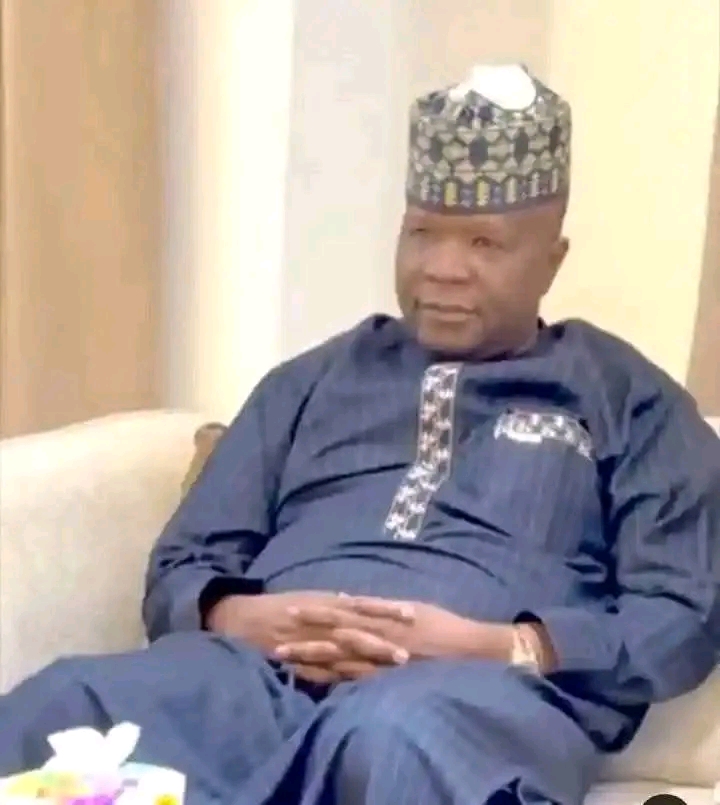
By Our Correspondent
Gombe political analyst and commentator, Ahmad Shuaibu Gara Gombe, has expressed fears over key challenges facing Governor Muhammadu Inuwa Yahaya of Gombe State as his administration gradually winds down with less than two years to the end of his tenure.
In a widely circulated commentary, Gara Gombe, who described Governor Yahaya as “one of the best performing governors in Nigeria today”, outlined four major areas of concern: succession, sustainability of projects, corruption in government agencies, and life after governorship.
Succession Dilemma
According to Gara Gombe, choosing the right successor will be one of the greatest tests for Governor Yahaya. He warned that presenting the wrong candidate could plunge the state into a political crisis similar to the ongoing rift between Kaduna State Governor, Uba Sani, and his predecessor, Nasir El-Rufai.
Projects Sustainability
While praising Yahaya’s developmental strides, Gara Gombe expressed fears that many of the projects may be abandoned by whoever succeeds him. He suggested that the governor should initiate a Projects Sustainability Bill at the State House of Assembly to ensure continuity and protection of ongoing projects, irrespective of changes in political leadership.
Corruption in Government Agencies
The outspoken analyst also raised concerns about corruption within ministries, departments, and agencies of the state. He alleged that some had already been subjected to audit exercises and found wanting. He urged Governor Yahaya to decisively tackle such cases before the end of his administration to preserve his legacy.
Life After Governorship
On the governor’s future political ambitions, Gara Gombe advised him against contesting for a senatorial seat, suggesting instead that Yahaya should focus on playing the role of a kingmaker and statesman. “The parliament of Nigeria does not fit GIYU,” he said, using the governor’s popular acronym.
Political Discontent and Loyalty Concerns
Gara Gombe further noted that some political allies who played roles in Yahaya’s victories still feel neglected and unrewarded. He recommended that the governor organise a Reunion Dinner to reconcile and appreciate his political associates from 2011 to date.
He also alleged that some commissioners, advisers, legislators, and party officials within the governor’s inner circle are already holding secret meetings with opposition figures and considering defection to the African Democratic Congress (ADC). Gara Gombe hinted that he may soon publish their names.
Commendation and Final Note
Despite his concerns, Gara Gombe congratulated Governor Yahaya on the recent creation of Local Development Areas (LDAs) approved by the State House of Assembly, promising to release a detailed opinion on the matter soon.
He concluded by praying for the governor and the people of the state:
“God bless H.E GIYU. God bless Gombe State and our people.
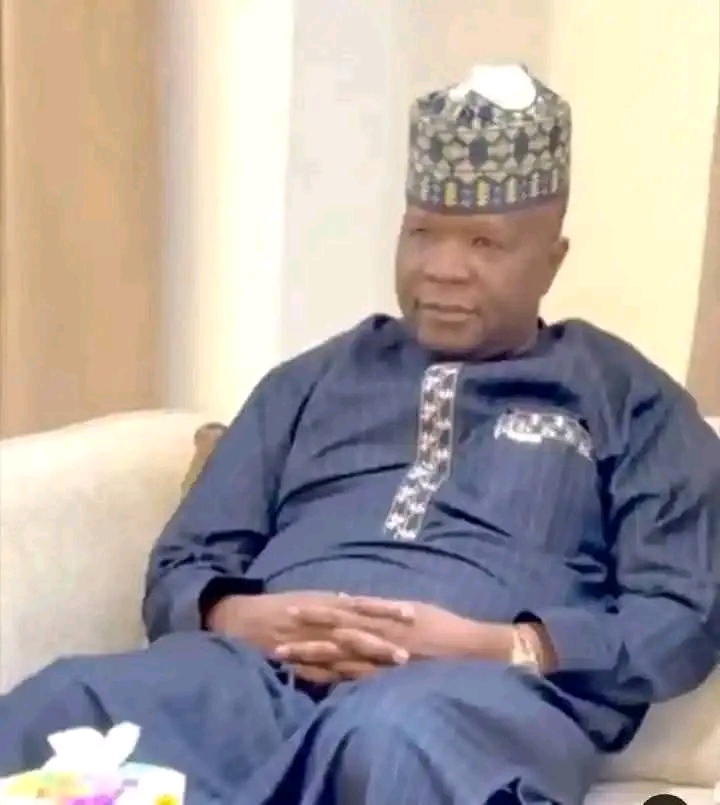
Succession, Corruption, and Loyalty: Gara Gombe Raises Red Flags for APC in Gombe
By Our Correspondent
Gombe political analyst and commentator, Ahmad Shuaibu Gara Gombe, has expressed fears over key challenges facing Governor Muhammadu Inuwa Yahaya of Gombe State as his administration gradually winds down with less than three years to the end of his tenure.
In a widely circulated commentary, Gara Gombe, who described Governor Yahaya as “one of the best performing governors in Nigeria today”, outlined four major areas of concern: succession, sustainability of projects, corruption in government agencies, and life after governorship.
Succession Dilemma
According to Gara Gombe, choosing the right successor will be one of the greatest tests for Governor Yahaya. He warned that presenting the wrong candidate could plunge the state into a political crisis similar to the ongoing rift between Kaduna State Governor, Uba Sani, and his predecessor, Nasir El-Rufai.
Projects Sustainability
While praising Yahaya’s developmental strides, Gara Gombe expressed fears that many of the projects may be abandoned by whoever succeeds him. He suggested that the governor should initiate a Projects Sustainability Bill at the State House of Assembly to ensure continuity and protection of ongoing projects, irrespective of changes in political leadership.
Corruption in Government Agencies
The outspoken analyst also raised concerns about corruption within ministries, departments, and agencies of the state. He alleged that some had already been subjected to audit exercises and found wanting. He urged Governor Yahaya to decisively tackle such cases before the end of his administration to preserve his legacy.
Life After Governorship
On the governor’s future political ambitions, Gara Gombe advised him against contesting for a senatorial seat, suggesting instead that Yahaya should focus on playing the role of a kingmaker and statesman. “The parliament of Nigeria does not fit GIYU,” he said, using the governor’s popular acronym.
Political Discontent and Loyalty Concerns
Gara Gombe further noted that some political allies who played roles in Yahaya’s victories still feel neglected and unrewarded. He recommended that the governor organise a Reunion Dinner to reconcile and appreciate his political associates from 2011 to date.
He also alleged that some commissioners, advisers, legislators, and party officials within the governor’s inner circle are already holding secret meetings with opposition figures and considering defection to the African Democratic Congress (ADC). Gara Gombe hinted that he may soon publish their names.
Commendation and Final Note
Despite his concerns, Gara Gombe congratulated Governor Yahaya on the recent creation of Local Development Areas (LDAs) approved by the State House of Assembly, promising to release a detailed opinion on the matter soon.
He concluded by praying for the governor and the people of the state:
“God bless H.E GIYU. God bless Gombe State and our people.
Activist
We Elected You, Not the Police’ Lawyer Slams Gov Inuwa for Abandoning the People
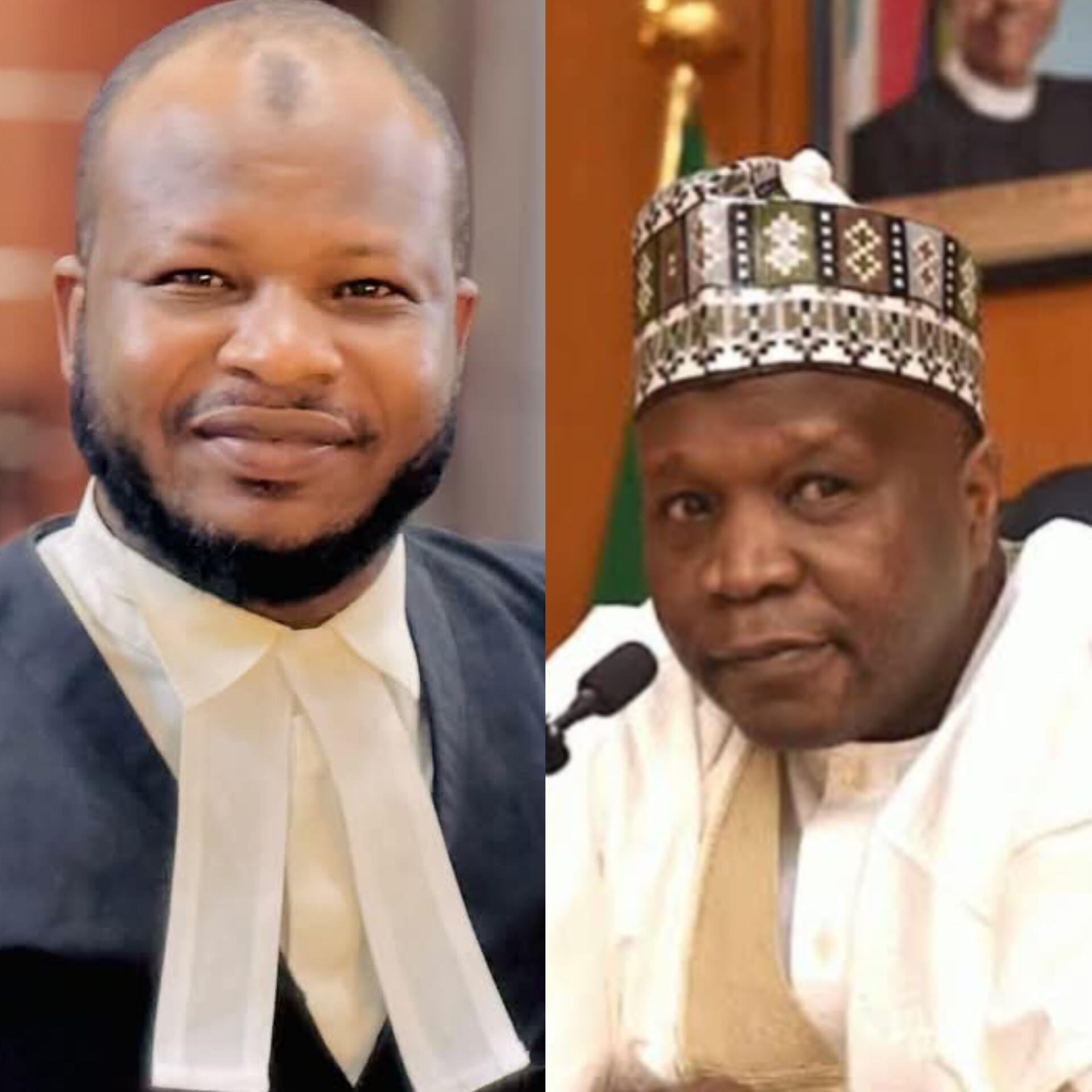
By Our Correspondent
A prominent constitutional lawyer and human rights advocate, Hamza Nuhu Dantani, Esq., has written an open letter to the Executive Governor of Gombe State, Alhaji Muhammadu Inuwa Yahaya, appealing for the immediate lifting of the nighttime motorcycle ban currently enforced across the state.
In the letter titled “Appeal for the Lifting of the Nighttime Motorcycle Ban in Our Beloved State, Gombe”, Dantani commended Governor Yahaya’s commitment to ensuring the safety and security of Gombe residents but argued that the ongoing ban, which restricts motorcycle operations between 7:00 p.m. and 6:00 a.m., has become “a cure far worse than the disease it seeks to address.”
Dantani noted that while the policy was initially introduced by the Gombe State Police Command as a measure to tackle insecurity, its continued enforcement has inflicted severe economic and social hardship on law-abiding citizens. He stressed that the ban disproportionately affects the livelihoods of commercial motorcycle operators, many of whom are breadwinners sustaining their families, paying school fees, and meeting hire-purchase obligations.
“Your Excellency, with the utmost respect, the continuation of this restriction is a cure far worse than the disease it seeks to address,” the lawyer wrote. “The unintended consequences have become more severe and far-reaching, disrupting essential services and crippling economic activity, especially for those who operate motorcycles at night.”
Dantani reminded Governor Yahaya of his constitutional responsibility as the chief security officer of the state, citing Section 14 of the 1999 Nigerian Constitution, which declares the security and welfare of the people as the primary purpose of government. He also referenced legal precedents such as Bariga-Amange v. Adumen (2016) 13 NWLR (Pt. 1530) 349, which underscores the balance between security and the welfare of citizens.
The rights activist criticized the rationale that the restriction would reduce mobile phone theft, arguing that criminals can easily switch to other means of transportation such as tricycles or private vehicles.
“Blanket policies that punish law-abiding citizens alongside criminals cannot address the root causes of insecurity,” he warned.
Citing the experiences of neighboring states like Borno and Yobe, where similar bans were either ineffective or later lifted due to economic hardship, Dantani urged the Gombe State Government not to ignore the lessons learned from such measures.
The lawyer further highlighted the broader socio-economic impact of the ban, pointing out that hospital workers, food vendors, traders, and religious leaders have all been adversely affected. He noted that even some police officers tasked with enforcing the policy have faced transportation challenges.
“This is a democracy, and the people—the market woman, the night-time nurse, the okada rider, and the student walking home after evening prayers—bear the brunt of this decision. They are groaning under hardship and calling upon your compassionate leadership,” he said.
Concluding his appeal, Dantani called on Governor Yahaya to reconsider the policy in the interest of fairness and progress:
“Let reason prevail. Let the voices of the people be heard. Let Gombe continue its march towards prosperity, unhindered by measures that inadvertently punish the people they are meant to protect.”
The letter, which is already circulating widely among Gombe residents, has sparked fresh debate on the effectiveness and fairness of the nighttime motorcycle ban. Many residents have echoed Dantani’s sentiments, calling on the government to adopt more targeted and intelligence-driven security measures rather than blanket restrictions.
-

 Leadership1 year ago
Leadership1 year agoBreaking: African Union Appoints Pantami as Co-Chair of the 4th Industrial Revolution Policy Council
-

 Politics2 years ago
Politics2 years agoFormer Gombe State APC Promoters Forum Chairman Attacked Following Political Commentary
-

 Appointment1 year ago
Appointment1 year agoGombe State Indigene, Appointed New Vice Chancellor (ATBU)
-
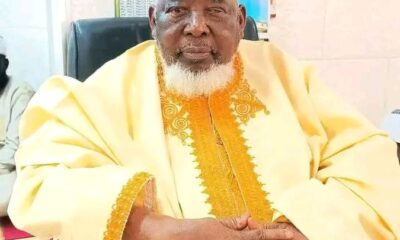
 Death11 months ago
Death11 months agoProminent Nigerian Islamic Scholar, Sheikh Sa’idu Hassan Jingir, Passes Away
-
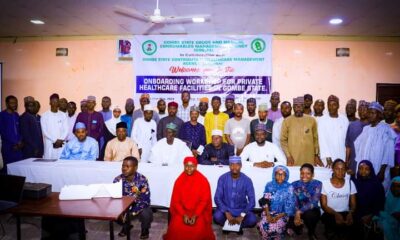
 Health2 years ago
Health2 years agoGombe State Organizes Onboarding Workshop for Private Healthcare Facilities
-
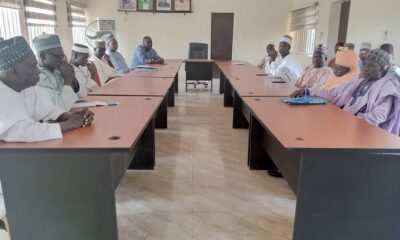
 Water2 years ago
Water2 years agoGombe Government Mobilizes Stakeholders to Combat Illegal Water Connections
-
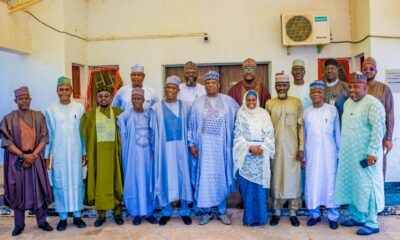
 Politics1 year ago
Politics1 year agoGombe State Inaugurates Human Capital Development Council
-
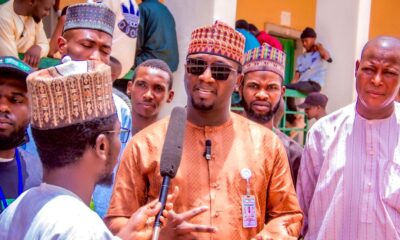
 Politics2 years ago
Politics2 years agoGombe State Launches Presidential Palliative Program (PPP) to Aid Small Businesses
